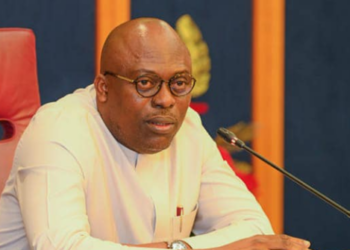The National Universities Commission (NUC) has called on African universities to recognise the value of forging partnerships with higher institutions of learning worldwide to address the problem of unemployability of graduates of African universities.
NUC’s acting executive secretary, Mr. Chris Maiyaki, made the call Friday in Abuja at the 3rd Annual Conference of the Forum for Innovation in African Universities (FIAU) with the theme: “Strengthening Africa’s Higher Education in a Post-Covid-19 World.”
Maiyaki said by embracing international collaborations, the universities could tap into a wealth of expertise, resources, and opportunities for their students and faculties.
He noted that there was a challenge of resource constraint faced by universities across Africa, saying to address the situation, the institutions required strategic partnerships.
“Collaborations with governments, private sector entities, philanthropic organisations, and international development agencies are crucial in pooling resources, sharing expertise, and creating sustainable funding models,” he said.
Maiyaki said the Commission championed the development of guidelines for the implementation of Transnational Education (TNE) in Nigeria for the purpose of partnering with other institutions abroad.
“TNE presents a wide range of opportunities such as increasing access to higher education for our youth and promoting strategic alliances between countries and regions. These partnerships must, however, be built on mutual respect, shared objectives, and a commitment to nurturing talent and promoting global citizenship.”
He stressed the need to integrate technology into the delivery of university education to ensure its resilience in a post-COVID-19 era. This, he said, can be attained by harnessing the power of innovation so that the institutions can foster sustainable university-industry partnerships that transcend traditional boundaries.
“These partnerships will allow us to align our curricula with the evolving needs of the job market; creating graduates who are not only well-versed in theory but also possess the practical skills demanded by employers.




